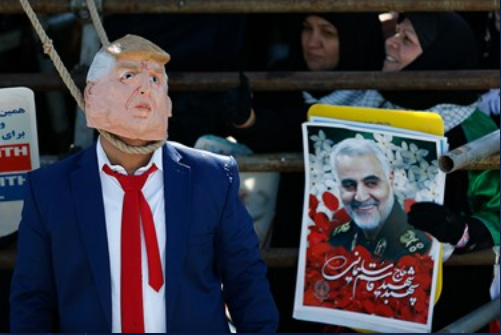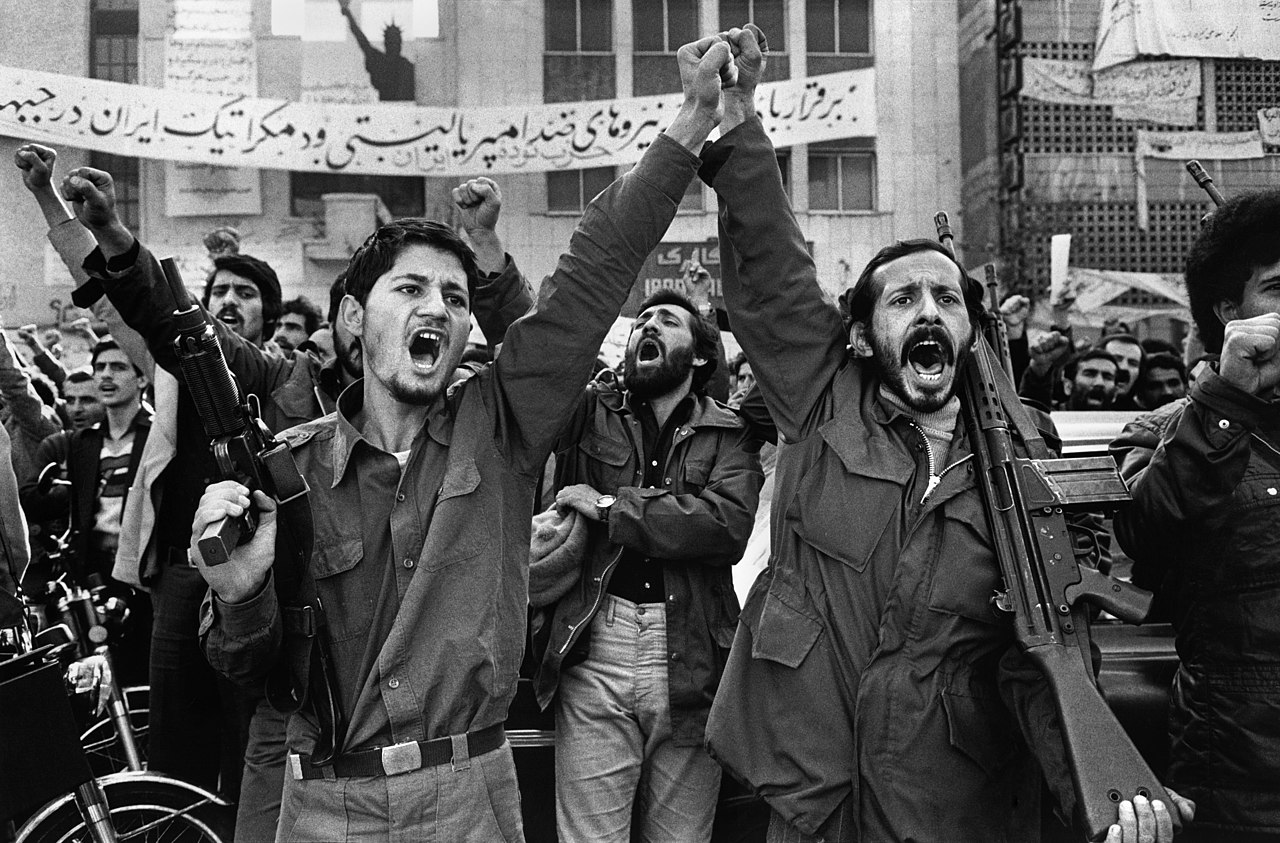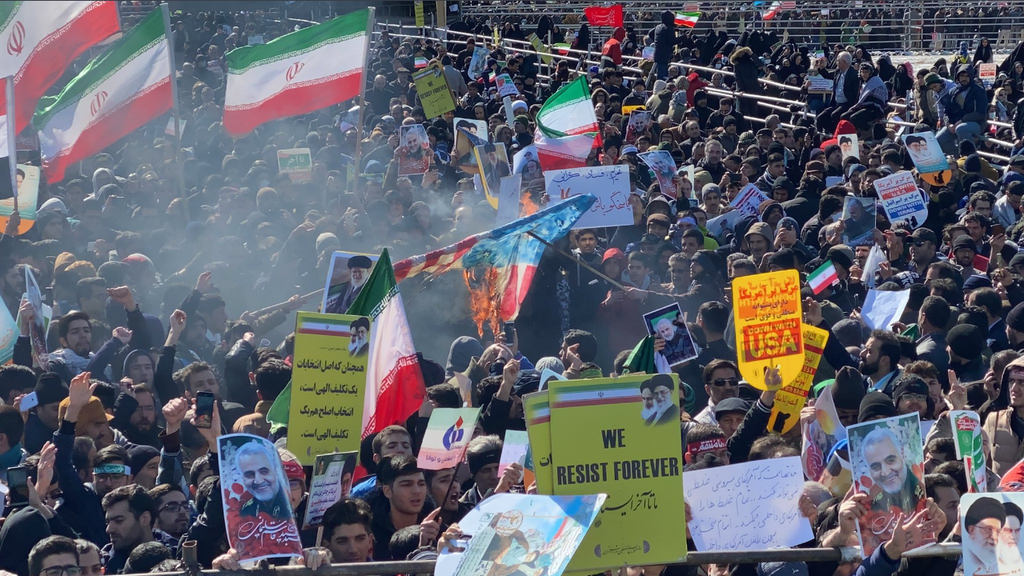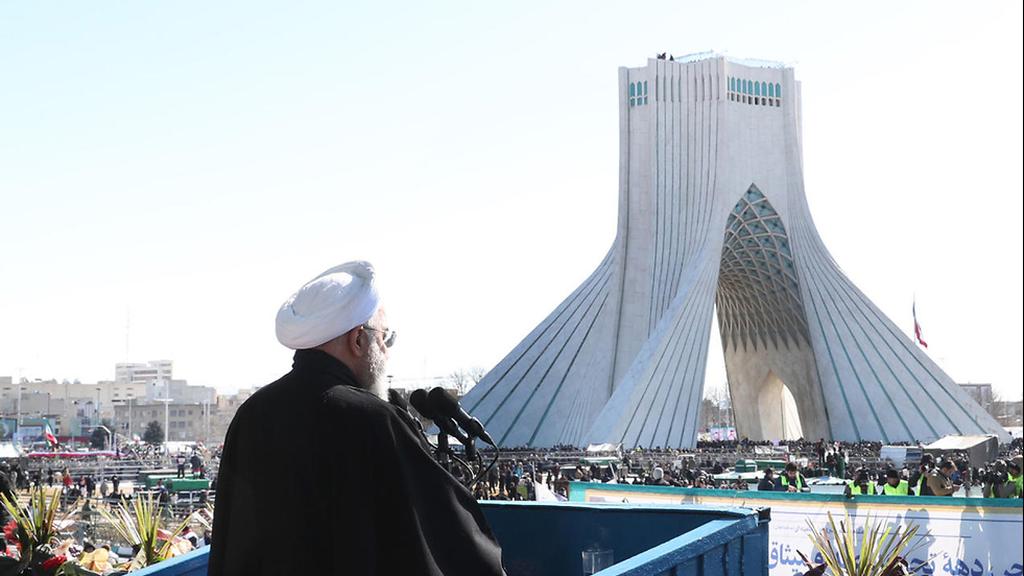Iranians were taking to the streets of Tehran and other cities and towns across the country on Tuesday for rallies and nationwide celebrations marking the anniversary of the 1979 Islamic Revolution.
State media said the rallies would take place in more than 5,000 cities, towns and districts all around Iran. In the capital, Tehran, Iranians set off from 12 different neighborhoods toward the central Tehran Freedom Square, where Iranian President Hassan Rouhani was due to address the crowds.
State TV showed video footage of rallies with people holding signs that read, "Death to America" and "Death to Israel".
This year's anniversary celebrations come amid unprecedented bitterness between Tehran and Washington. Tensions have spiked since President Donald Trump withdrew the U.S. from Iran’s nuclear deal with world powers in May 2018.
A series of attacks across the Mideast culminated with the U.S. launching a drone strike that killed Iranian Revolutionary Guard Gen. Qassem Soleimani in January in Baghdad.
Iran retaliated for the U.S. airstrike with a ballistic missile attack targeting U.S. forces in Iraq, wounding more than 100 U.S. troops.
However, public anger is also rising among this nation of 80 million people, especially after Iranian forces accidentally shot down a Ukrainian jetliner after takeoff from Tehran last month, killing all 176 people on board.
The Iranian government denied for days that a missile strike downed the plane before admitting to it amid Western pressure.
4 View gallery


A man dressed as U.S. President Trump with a noose around his neck stands near to an image of slain Iranian Gen. Qassem Soleimani
The anniversary comes some 10 days before parliamentary elections in Iran that are expected to gauge the popularity of Rouhani and his camp, a mixture of moderate and pro-reform factions, over their hard-line rivals.
Missiles were put on display as part of the anniversary celebrations, according to the Tasnim news agency. Iran's state TV showed archival footage of missile launches and underground missile storage facilities as part of its anniversary coverage.
The missile program is not intended for attacks on neighboring countries, Rouhani said on Monday.
4 View gallery


Armed protesters attend a demonstration against the Shah in the run-up to the 1979 Iranian revolution. The banner behind them reads: 'Long live anti-Imperialism and Democratic forces'
(Photo: Archive)
The Islamic revolution in Iran began with widespread unrest over the reign of Shah Mohammad Reza Pahlavi. The Shah, who died terminally from cancer, fled Iran in January 1979.
Ayatollah Ruhollah Khomeini then returned from exile and the government fell on February 11, 1979 after days of mass demonstrations and clashes between demonstrators and security forces.
Iran would later vote for an Islamic republic, a Shiite theocracy with Khomeini as the first supreme leader who has the final say on all state affairs.
The anger over America that enabled the Shah to receive cancer treatment in New York later triggered the takeover of the U.S. embassy in Tehran by student militants and the subsequent hostage crisis that triggered decades of hostility.



